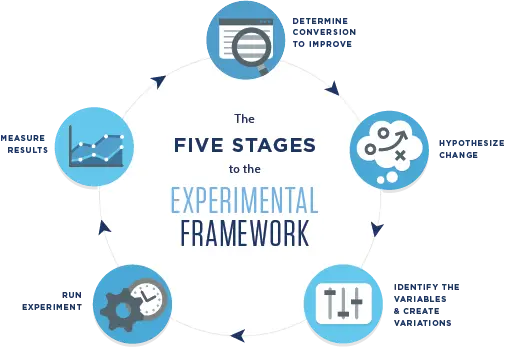
Introduction
In the highly competitive digital landscape, having a good website is no longer enough. To stand out and achieve peak performance, digital marketing agencies need to go beyond the basics and focus on achieving complete website optimization. By fine-tuning every aspect of a website, agencies can enhance user experience, improve search engine rankings, and drive conversions. In this article, we will explore the significance of complete website optimization and how digital marketing agencies can help businesses transition from good to great in the online realm.
- Understanding Complete Website Optimization: Complete website optimization involves a comprehensive approach to enhance all elements of a website for optimal performance. It includes optimizing website speed, improving user experience, implementing responsive design, optimizing for search engines, and enhancing conversion rates. By addressing all aspects of website optimization, digital marketing agencies can propel businesses towards peak performance.
- Optimizing Website Speed: Website speed is crucial for retaining visitors and improving user experience. Digital marketing agencies should focus on optimizing website speed by minimizing code, compressing images, utilizing caching techniques, and choosing reliable hosting providers. Faster loading times result in reduced bounce rates, increased engagement, and improved search engine rankings.
- Enhancing User Experience (UX): User experience is a key factor in determining the success of a website. Digital marketing agencies should prioritize enhancing UX by creating intuitive navigation, user-friendly interfaces, and engaging visuals. By conducting usability tests, analyzing user behavior, and optimizing conversion funnels, agencies can provide a seamless and enjoyable experience that encourages visitors to stay and convert.
- Implementing Responsive Design: With the majority of internet users accessing websites on mobile devices, responsive design is essential. Digital marketing agencies should ensure websites are optimized for different screen sizes and devices. Responsive design ensures consistent branding, improved user experience, and better search engine rankings. By adapting to various devices, businesses can reach a wider audience and maximize engagement.
- Search Engine Optimization (SEO): Optimizing websites for search engines is critical for driving organic traffic. Digital marketing agencies should focus on keyword research, on-page optimization, technical SEO, and link building. By implementing SEO best practices, agencies can enhance search engine visibility, increase organic rankings, and attract targeted traffic to the website.
- Conversion Rate Optimization (CRO): Conversion rate optimization aims to maximize the percentage of visitors who complete desired actions. Digital marketing agencies should conduct A/B testing, analyze user behavior, and optimize conversion funnels. By refining calls-to-action, simplifying forms, and improving trust elements, agencies can boost conversion rates and drive more valuable leads and sales.Continuous
- Monitoring and Iteration: Website optimization is an ongoing process. Digital marketing agencies should continuously monitor website performance, analyze user feedback, and stay updated with industry trends. By leveraging analytics tools, conducting regular audits, and making data-driven decisions, agencies can identify opportunities for improvement and continuously optimize website performance.

What Is Website Optimization? Website optimization entails the systematic use of controlled experiments to enhance a website’s effectiveness in achieving its business objectives. To boost their website’s performance, site owners employ A/B testing, which involves testing various page variations to identify changes that yield improved outcomes, such as increased conversions (e.g., demo requests, higher organic search rankings, more purchases, reduced customer service interactions, etc.).
Step-by-Step Guide to Website Optimization

Website optimization follows the same principles as conversion rate optimization and is rooted in the scientific method.
- Define the objective of your website optimization. Different types of businesses have distinct goals for optimization. For instance, an eCommerce website aims to boost purchases and average order values (AOV). To achieve this, website owners conduct quantitative and qualitative research on critical website pages that impact the ultimate goal. The homepage, often the initial point of entry for visitors, is a valuable area for A/B testing, as it must convey the company’s offerings clearly and guide users to the next step.
- Develop hypotheses for influencing your objective. Once you’ve identified the primary goal for improvement, pinpoint underperforming aspects on a webpage and formulate hypotheses on how these elements can be tested to enhance conversion rates.
- Compile a list of variables to test in your experiment. Changes are introduced as variations and tested using A/B split testing tools.
- Execute the experiment. Ensure you collect sufficient data during the experiment to make statistically significant conclusions. It’s crucial to avoid making business decisions based on inconclusive data sets.
- Analyze the results, draw conclusions, and iterate. Experiment outcomes reveal whether the alterations to the website element yielded improvements. A winning variation can become the new baseline and undergo iterative testing as more improvement ideas emerge. Even a failed test provides valuable insights and guides the next steps in the optimization process.
Website optimization can deliver numerous measurable business advantages when executed correctly. Firstly, it identifies the optimal versions of webpage elements that assist visitors in achieving specific goals. Optimization enhances the website’s effectiveness in converting visitor traffic into email subscribers, readers, or paying customers. Consequently, improved efficiency leads to higher ROI on customer acquisition and traffic-generating initiatives such as web searches, Google AdWords, social media, and email marketing.
The objectives of website optimization
The objectives of website optimization are contingent on factors such as the business type, target audience, and the desired action from visitors, be it making a purchase, submitting a form, or reading an article. The desired visitor action is often referred to as conversions, representing the number of audience members who successfully complete a specific action.
For example:
- An online publication engages in website optimization to boost the number of articles read by visitors.
- An e-commerce store optimizes its website to facilitate completed checkouts and encourage repeat purchases.
- An online software company focuses on website optimization to increase the conversion rate of visitors signing up for a free trial of their product.
- An insurance company undertakes website optimization to capture more potential leads interested in purchasing insurance coverage.
- A fundraising campaign conducts optimization to enhance their donation form and encourage a higher volume of donations.
Depending on the company’s objectives, website optimization may involve experimenting with:
- Modifying a headline or adjusting key messages related to the company’s value proposition.
- Altering the use of visual media, such as photographs or videos.
- Adapting the length of a form, which may entail changing the number of required fields or their order of completion.
- Enhancing the visibility of customer case studies that highlight their success with the product or service.
- Adjusting the visual style, text, and positioning of a call to action (CTA) button or link.
- Restructuring the website’s navigation system for improved user experience.
- Rearranging the placement of social sharing features.
- Optimizing the appearance and layout of webpages for visitors accessing the site on mobile devices.

Conclusion
Complete website optimization is a key driver in transitioning websites from good to great. By optimizing website speed, enhancing user experience, implementing responsive design, optimizing for search engines, and focusing on conversion rate optimization, digital marketing agencies can propel businesses towards peak performance. Through continuous monitoring and iteration, agencies ensure websites stay at the forefront of digital excellence, delivering exceptional user experiences, maximizing search visibility, and driving conversions. With complete website optimization, businesses can thrive in the competitive digital landscape and achieve greatness online.
If you are looking to buy one click here, contact us here
Follow us on Instagram
